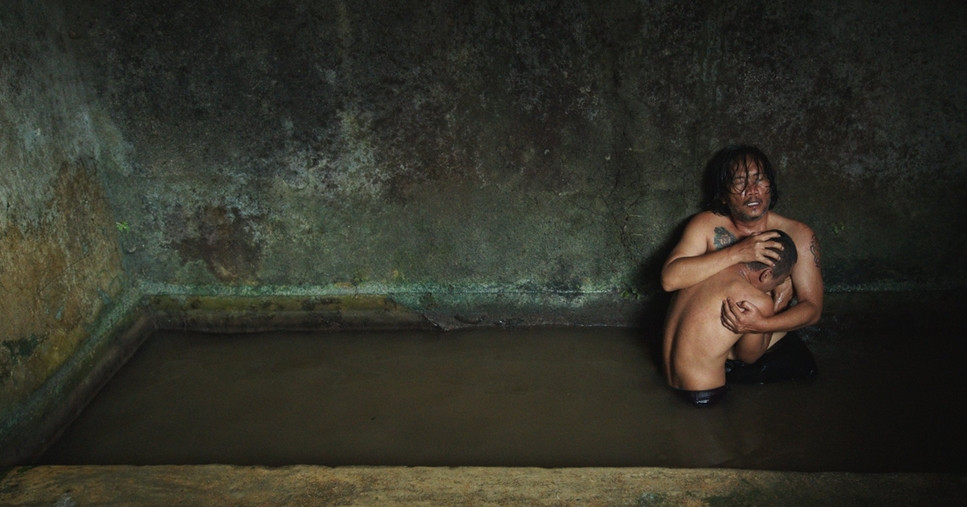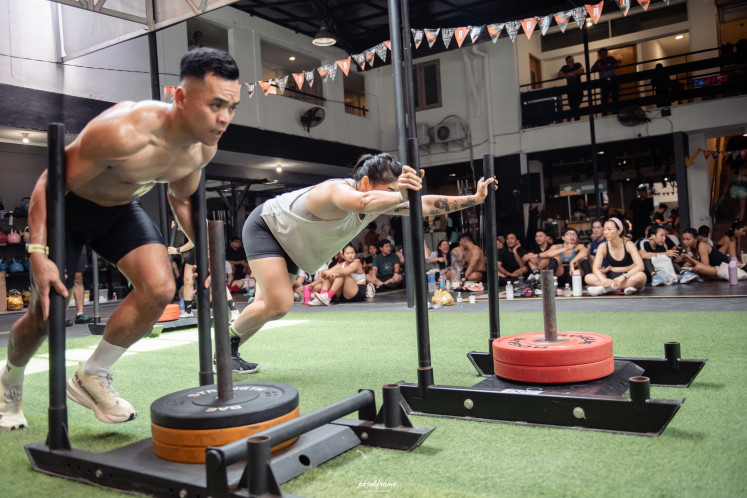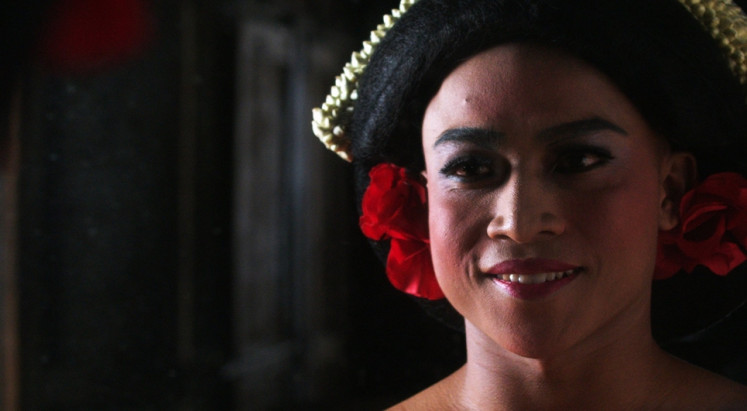Popular Reads
Top Results
Can't find what you're looking for?
View all search resultsPopular Reads
Top Results
Can't find what you're looking for?
View all search results'Kucumbu Tubuh Indahku', poetic ode to the human body
Garin Nugroho uses his nuanced cinematic style to explore gender in his latest film.
Change text size
Gift Premium Articles
to Anyone
Director Garin Nugroho has outdone himself in his latest film, Kucumbu Tubuh Indahku (Memories of My Body).
His acclaimed 1998 film, Daun di Atas Bantal (English title: Leaf on a Pillow), follows three street children to their eventual doom. It was like a cinematic bait-and-switch: viewers become invested in these kids only to watch them suffer. The nascent Indonesian movie scene of the time welcomed Daun as one of its finest entries and Garin as one of its finest directors.
This time, instead of three kids, Garin trains his quietly frenetic camera on one boy called Juno (Raditya Evandra), who lives in a Central Java village.
Garin’s latest cinematic outing, released internationally as Memories of My Body, follows four stages of Juno’s life, including his years as a teen (Muhammad Khan), his destiny hinging on his body.
Based on the real life of dancer Rianto (who plays the adult Juno and narrator), Kucumbu treats the human body like a disease and a cure, a curse and a blessing. It can withstand harm, it can age, it can attract, but more importantly, it can dance.
Dance forms a great part of Juno’s life and represents Garin’s comments on masculinity. In Kucumbu, masculinity has another name: violence.
In an early scene, a young Juno steals a look at lengger dancers and is caught by the lengger dance master (Sujiwo Tejo), who lectures him on what lengger means: a twisted way of referring to the genitals. Juno’s femininity is expressed in his love for his body, the keeper of his memories and one that both witnesses and sustains hardships.
Juno’s father deserts him due to unresolved trauma as a suspected communist during the 1965 massacre. Juno has been on the move since then, carting around his cassette player. His aunt chastises him by poking a needle into his finger. The oozing blood eats away at Juno’s idea of the human body, and later, when he is older, he pokes a needle into his own finger. When he dances, however, his body looks impenetrable.
Femininity emerges more as a natural sign of Juno’s maturity, growing in parallel. Garin uses this as a subtle device to challenge the long-held belief of sexuality: it is not a choice.
During his teenage years, Juno harbors a crush on a chiseled-bodied boxer (Randy Pangalila). In keeping with Garin’s style, their eroticism is subtle and bereft of showiness.
When Juno joins a village lengger troupe, he partakes in the warok-gemblak tradition – presumably inspired by the East Javanese Reog tradition — in which he, as the gemblak, brings power to his keeper, the warok, by becoming his lover.
Kucumbu is a spectacularly meticulous film, right down to the blocking and the lighting on Juno’s face.
Khan kills his role as the teenage Juno, generally portraying him as a timid boy until he dances, when Khan’s face takes on an alluring droop. When Juno experiences a personal tragedy in connection with a relative's advice to treasure his body, Khan portrays the stages of his inconsolable sadness in a matter of seconds.
Raditya is also a wonderful young actor that is able to follow Garin’s predilection for subtlety.
Kucumbu is also one of the director's most exquisite films in terms of narrative, as it is told mostly in Javanese. Each chapter in Juno’s life is punctuated by Rianto's narration of his life and dances, sometimes with unnerving precision and fervor.
Garin’s signature style of featuring Javanese traditional songs, as in Nyai, takes front and center in Kucumbu. The abrupt turn of fate that befalls his characters is also evident here, such as when Juno’s dance teacher is mercilessly taken to the police. From the way this scene is shot, it is unclear if the director's intention is to illustrate sexual exploitation or Juno’s irresponsibility.
Midway through the film, however, Garin slightly muddies up his commentary on gender by introducing a strange subplot, which features a regent played by Teuku Rifnu Wikana.
Together with the regent’s scheming wife, the regent calls Juno his lucky charm and increasingly becomes attracted to his body. The subplot might suggest how Juno’s sexuality becomes a political liability, but it feels forced.
By the end of Kucumbu, what Juno has left the audience with an overwhelming and powerful message, that his dance is as pure as his femininity. (hdt)
Kucumbu Tubuh Indahku (Memories of My Body)
Production: Fourcolours Films, Go-Studio
Director: Garin Nugroho
Cast: Raditya Evandra, Muhammad Khan, Randy Pangalila, Sujiwo Tejo, Teuku Rifnu Wikana
Running Time: 106 minutes












